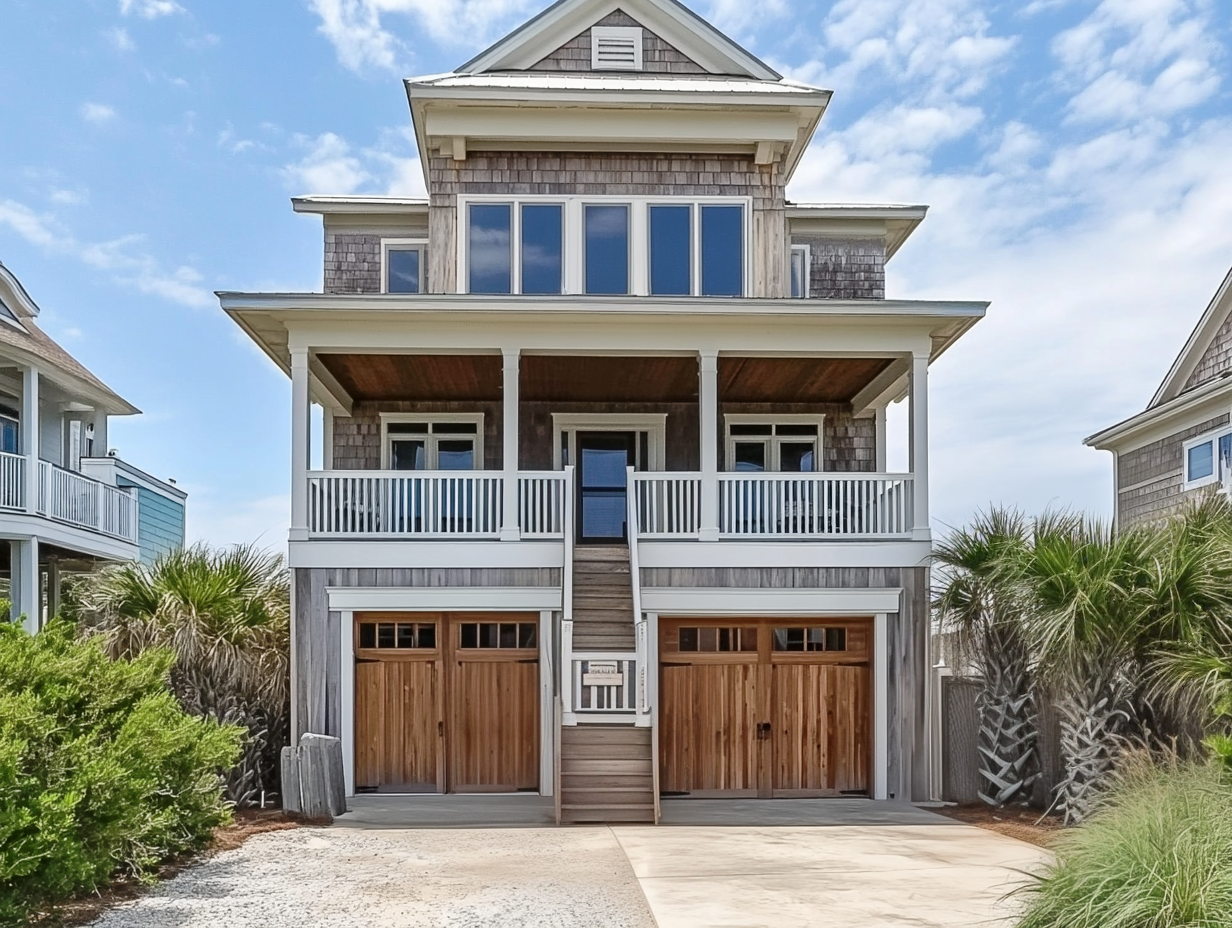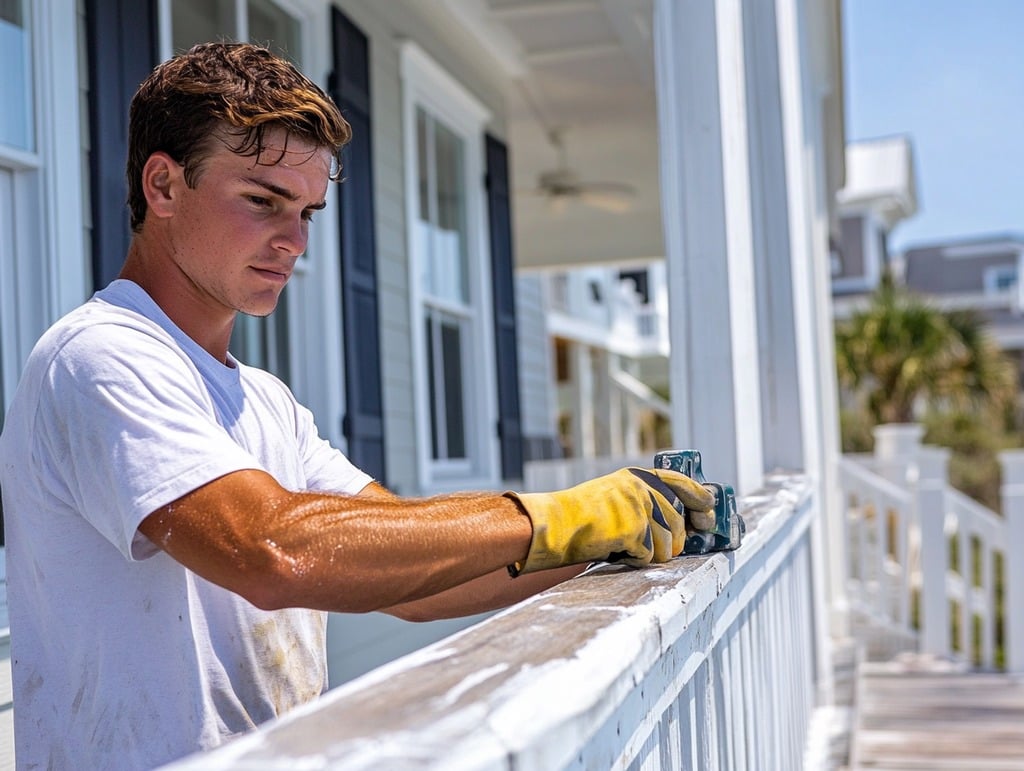Investing in a vacation home can be a dream come true—imagine owning a property in your favorite destination while also generating rental income when you’re not using it. However, buying the right vacation home requires careful research and planning.
From location and rental potential to financing and maintenance, there are several factors to consider before making a purchase. This guide breaks down everything you need to know to make a smart and profitable vacation home investment.
1. Location, Location, Location
The success of your vacation home investment largely depends on where it’s located. Properties in high-demand tourist areas, such as beach towns, ski resorts, or near national parks, tend to have better rental potential and long-term appreciation. A location with steady visitor traffic increases your chances of maintaining high occupancy rates, making it a more secure investment.
Proximity to attractions plays a huge role in desirability. Homes near the beach, hiking trails, theme parks, or cultural landmarks often see more consistent rental bookings. Additionally, easy access via airports, highways, or public transportation is a major plus for guests who want convenience when traveling.
Beyond tourism, the presence of local amenities such as restaurants, shopping centers, hospitals, and recreational activities can make a property more attractive to both renters and future buyers. A well-rounded location with a mix of entertainment, dining, and essential services ensures year-round demand for your vacation home.
2. Market Trends & Property Value
Before purchasing a vacation home, it’s essential to research the real estate market in your chosen area. Look at historical property values to see if prices have been increasing over time, as steady appreciation is a good indicator of a strong investment. Areas that have recently seen economic growth, infrastructure improvements, or increased tourism can be great choices for investment properties.
Seasonal demand also plays a significant role. Some locations thrive year-round, while others are highly seasonal, meaning your rental income could fluctuate drastically. Consider how often the property will be vacant during off-seasons and whether you can cover expenses during those slower months.
Additionally, it’s wise to look into future development plans in the area. If new hotels, resorts, or entertainment complexes are being built, it could signal an increase in demand and property values. On the other hand, oversaturation in the market can lead to increased competition, making it harder to secure bookings.
3. Rental Income Potential
If you plan to rent out your vacation home, you need to evaluate its earning potential. Short-term vacation rentals often generate higher income than long-term rentals, but they also require more management and upkeep. Research similar properties in the area to understand their average nightly rates and occupancy levels.
Consider the demand fluctuations throughout the year. Some areas experience peak seasons where rental rates are high, but off-seasons with little to no bookings can impact overall profitability. Understanding the seasonality of your market helps you set realistic income expectations.
It’s also crucial to be aware of local rental laws and regulations. Some cities have strict short-term rental restrictions or require special permits for vacation rentals. Before purchasing, check with local authorities to ensure you can legally rent out the property.
To determine your return on investment (ROI), calculate your projected rental income against expenses like mortgage payments, property taxes, insurance, and maintenance. If the numbers align with your financial goals, the property could be a worthwhile investment.
4. Costs & Expenses to Consider
Owning a vacation home comes with additional costs beyond the purchase price. Property taxes and insurance can be higher in tourist-heavy areas, so it’s essential to account for these ongoing expenses. Some locations also have extra fees for short-term rental properties, such as occupancy or lodging taxes.
Maintenance and repairs are another major factor. Vacation homes experience more wear and tear, especially if rented frequently. You’ll need to budget for regular upkeep, such as landscaping, cleaning, and repairs, to ensure the property remains in excellent condition.
Furnishing and utilities are also important considerations. A well-furnished property attracts more guests, but outfitting a vacation home with quality furniture, kitchenware, and décor can be costly. Additionally, monthly expenses like electricity, water, internet, and cable should be factored into your budget.
If the property is part of a homeowner association (HOA), there may be monthly or annual fees. Additionally, hiring a property manager or vacation rental service to handle bookings and maintenance will come with its own set of costs. Understanding all these expenses will help you avoid financial surprises down the road.
5. Property Management & Maintenance
Managing a vacation rental requires time and effort. Some owners choose to self-manage their property, handling everything from guest bookings to maintenance. This approach saves money but can be time-consuming, especially if you don’t live near the vacation home.
Alternatively, hiring a property management company can take the stress off your shoulders. These services handle everything, including marketing, bookings, guest communication, cleaning, and maintenance. However, they typically charge 20-30% of your rental income, which impacts overall profitability.
Regardless of which option you choose, keeping the property in top condition is essential for attracting guests and receiving positive reviews. Regular cleaning, timely repairs, and providing a seamless guest experience will help maintain high occupancy rates and maximize rental income.
6. Legal Considerations & Regulations
Before buying a vacation home, familiarize yourself with local laws and regulations regarding short-term rentals. Some cities have zoning laws that limit vacation rentals or require special permits. In some cases, homeowner associations (HOAs) impose restrictions on rentals, limiting how often you can rent out the property or requiring approval from the board.
Tax implications are another important factor. Rental income is taxable, and some locations charge occupancy or lodging taxes. Be sure to consult with a tax professional to understand how these regulations may impact your investment.
7. Financing Your Vacation Home Investment
Financing a vacation home is different from purchasing a primary residence. Most lenders require a down payment of at least 20-30% for a second home or investment property. Additionally, mortgage interest rates for vacation homes are often higher than those for primary residences, so it’s important to shop around for the best rates.
Your debt-to-income ratio will also play a role in loan approval. Lenders will evaluate your ability to afford a second mortgage based on your existing financial obligations.
⚠️ Important Note: If you’re considering buying a condo, be aware that some lenders won’t finance the purchase if too many units in the complex are designated as second homes or vacation rentals. Lenders view this as a higher risk since owner-occupied properties are generally seen as more stable investments. Before making an offer, check with the condo association about the percentage of units used as second homes.
Final Thoughts
Investing in a vacation home can be both financially rewarding and personally enjoyable, but it requires careful planning. By evaluating location, rental potential, expenses, legal considerations, and financing options, you can make an informed decision that aligns with your financial goals.
If you’re serious about buying a vacation home, work with an experienced real estate agent, conduct thorough market research, and always have a clear financial plan.
Would you like help finding the perfect vacation home investment? Let us know!








